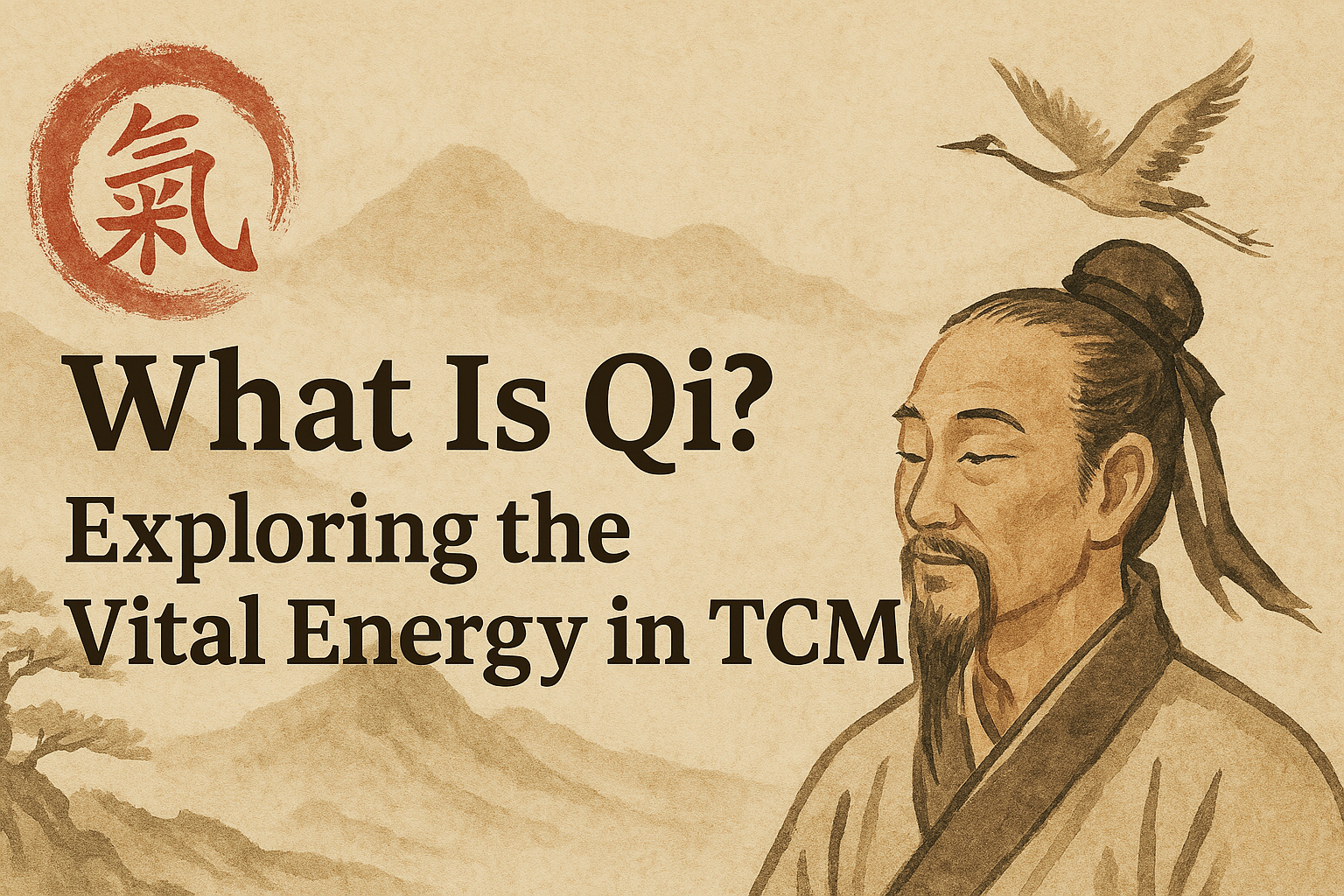In Traditional Chinese Medicine (TCM), Qi (气) is one of the most fundamental yet often misunderstood concepts. Frequently translated as “vital energy” or “life force,” Qi is the dynamic force that animates all life and sustains physiological function. But Qi is more than just energy — it’s a conceptual framework that reflects how the body maintains balance, responds to illness, and interacts with the environment.
This article will explore what Qi is, how it functions in TCM theory, its different types, and how its imbalance can lead to disease.
What Is Qi?
Qi (气) refers to the vital energy that flows through the body and the universe. It is both material and immaterial, forming the basis of life, movement, and transformation.
In classical texts such as the Huangdi Neijing (Yellow Emperor’s Inner Canon), Qi is described as:
“Those who understand Qi, understand the root of life.”
Qi can be understood in three layers:
- Qi of Heaven (Tian Qi) – environmental influences like wind, cold, heat
- Qi of Earth (Di Qi) – food, water, minerals
- Human Qi (Ren Qi) – physiological processes and vital functions
Functions of Qi in the Human Body
Qi has five major functions in the body:
- Promoting – Drives growth, development, and movement of blood and fluids.
- Warming – Maintains body temperature and metabolic activity.
- Defending – Protects against external pathogens (e.g., wind-cold).
- Transforming – Facilitates digestion, respiration, and other bodily transformations.
- Holding – Keeps blood in vessels, organs in place, and fluids from leaking.
Types of Qi in TCM
TCM categorizes Qi into several types based on origin and function:
| Type of Qi | Description |
|---|---|
| Yuan Qi (Original Qi) | Inherited from parents, supports growth and development. |
| Zong Qi (Gathering Qi) | Derived from air and food, accumulates in the chest, assists heart and lungs. |
| Ying Qi (Nutritive Qi) | Circulates with blood, nourishes organs and tissues. |
| Wei Qi (Defensive Qi) | Protects the body, especially skin and muscles, against external pathogens. |
| Zheng Qi (Upright Qi) | The body’s overall resistance, a collective term for healthy Qi. |
Qi Imbalance and Disease
Health in TCM is seen as a dynamic balance of Qi. When Qi is deficient, stagnant, or rebellious, it leads to illness.
- Qi Deficiency: Fatigue, spontaneous sweating, shortness of breath.
- Qi Stagnation: Emotional stress, digestive discomfort, menstrual irregularities.
- Qi Rebellion: Coughing (Lung Qi rebelling upward), acid reflux (Stomach Qi rebelling).
Restoring Qi balance is a core goal of TCM treatment, involving herbal medicine, acupuncture, Qigong, and dietary therapy.
Supporting Healthy Qi in Daily Life
TCM emphasizes daily practices to maintain and strengthen Qi:
- Balanced diet: Warm, cooked foods, avoiding cold/raw excess.
- Moderate exercise: Tai Chi, Qigong.
- Emotional regulation: Avoiding excess anger, worry, or sadness.
- Adequate rest: Sleep is essential for Qi restoration.
Conclusion
Understanding Qi is essential to grasping the core philosophy of Traditional Chinese Medicine. It is not only a type of energy but a dynamic and complex system that connects the body, mind, and environment. Whether through treatment or prevention, the regulation and support of Qi remain at the heart of TCM practice.


发表回复